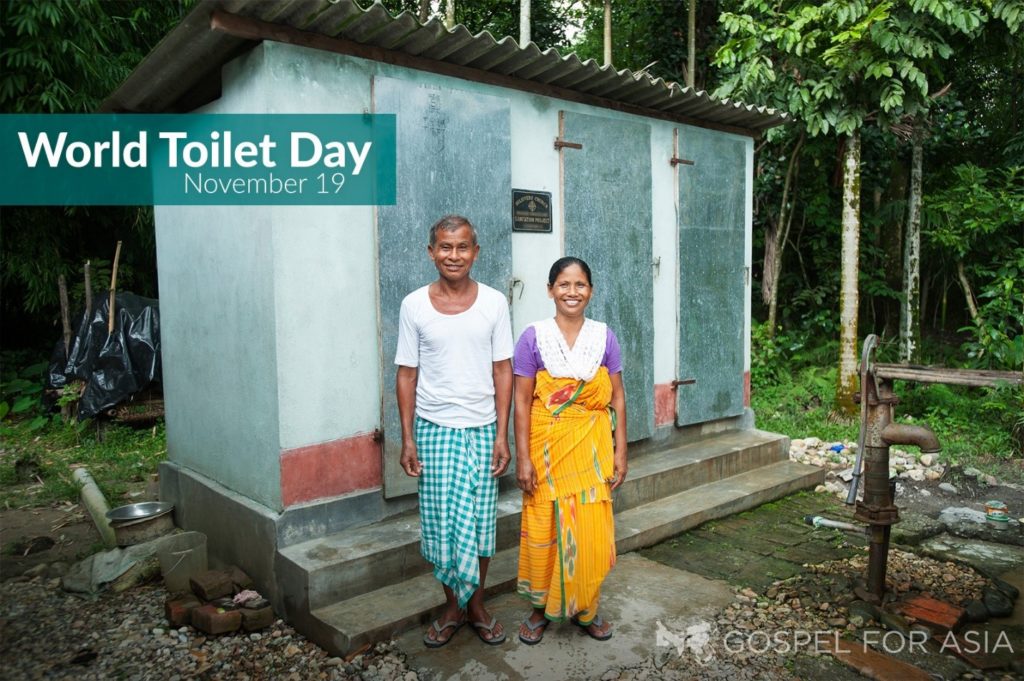WILLS POINT, TX – The United Nations has designated November 19 as the annual observation of World Toilet Day. The point of the day is to draw attention to the global sanitation crisis.
Sanitation crisis? How bad is it?
Some 4.2 billion people – over half of the world’s population – do not have access to safely managed sanitation. They live in places where open defecation is often the most desirable option. Their other options, if any, are the most basic, unimproved facilities. Many, if not most, are in ill-repair and are often not maintained. They are just as much a breeding ground for disease as human feces deposited along roadways, railroad tracks, in fields, creeks, riversides, alleys, and beaches.
The sum total of health care facilities where there are no sanitation facilities serves nearly 1.5 billion people.
One-third of all primary schools in the world lack essential sanitation services.
With 673 million people (more than twice the population of the United States) still defecating in the open, the UN knows that it needs to rapidly raise awareness of the need for sanitary toilets and waste disposal systems if it is to meet Sustainable Development Goal Number 6. That goal is “to ensure availability and sustainable management of sanitation and water for all people in all settings by 2030.”
“When someone has a ‘safely managed sanitation service’, it means they use hygienic toilet facilities that are not shared with other households and where excreta are either separated from human contact and safely disposed of in situ or transported and treated off-site, thereby protecting people and the environment from disease agents.8,9 Examples include flush/pour flush toilets connected to piped sewer systems, septic tanks or latrine pits; ventilated improved pit latrines; composting toilets; or, pit latrines with slab cover.”
The UN is using World Toilet day to warn stakeholders that progress is going to have to move along at a much more rigorous pace to meet the SDG goal. This is especially true in areas with the most impoverished populations.
Of the 152 countries that have committed to achieving the SDGs, only 40 are on track to potentially meet the standard of SDG 60.
The health implications associated with open defecation and the lack of safe, sanitary solutions for the disposal of human feces are staggering and should demand more considerable attention.
Read the UN’s 5-page Factsheet to learn more about World Toilet Day.
Erecting safe, sanitary toilet facilities is a significant component of Gospel for Asia’s outreach to the people of South Asia. In 2018 alone, Gospel for Asia built 6,431 toilet facilities at a cost of $160 each. On average, it would take an entire month’s wages for the families to pay for private, sanitary, and sustainable toilet systems. The work continues.
Click on this link to learn more about GFA’s gifting of toilets to impoverished people of South Asia.
Read a Special Report on Saving Lives at Risk from Open Defecation
About Gospel for Asia
GFA (Gospel for Asia) is a leading faith-based humanitarian and mission agency, bringing vital assistance and spiritual hope to millions across Asia, especially to those who have yet to hear the “good news” of Jesus Christ. In 2018, this included more than 70,000 sponsored children, free medical camps conducted in more than 1,100 villages and remote communities, over 4,700 wells drilled, over 11,400 water filters installed, income-generating Christmas gifts for more than 240,000 needy families, and spiritual teaching available in 110 languages in 14 nations through radio ministry. Gospel for Asia celebrated its 40th anniversary on July 3, 2019. For all the latest news, visit our Press Room at https://press.gfa.org/news.
